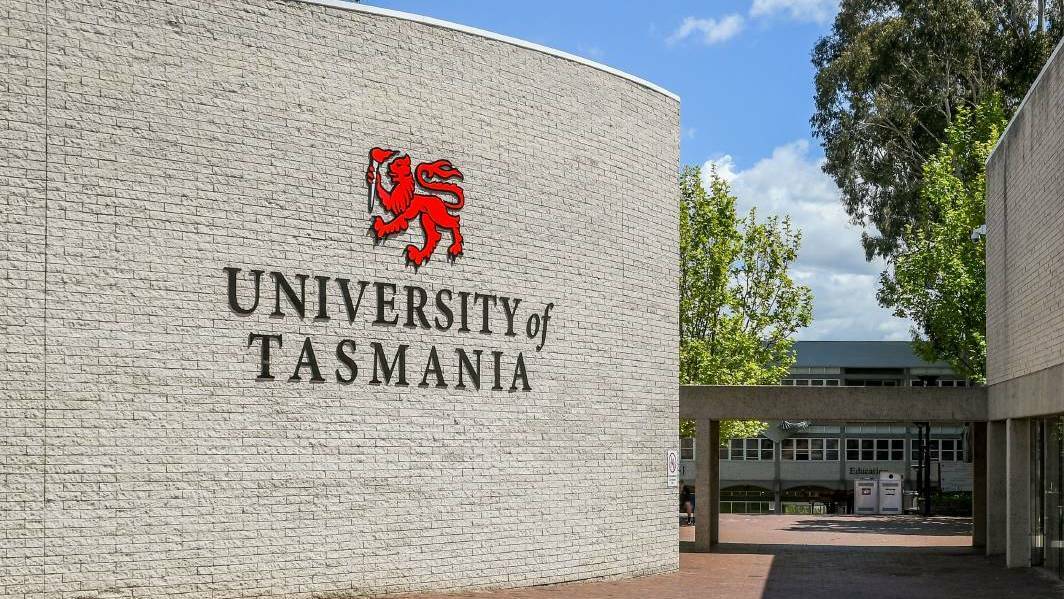
A decision by the University of Tasmania to move away from face-to-face lectures has been met with a mixed reception, but concerns remain.
Subscribe now for unlimited access.
or signup to continue reading
Last week, UTAS announced a decision to move lectures online from semester one 2022, instead choosing to refocus on additional hours of small group-learning through in-person tutorials and workshops.
READ MORE: Transplant patient calls for new donors
In a letter to staff, UTAS vice-chancellor Rufus Black said the move had been made in response to long-term trends in how students best engaged with learning.
Professor Black said students had historically engaged with tutorials more than lectures, with attendance at tutorials averaging between 75-80 per cent, while lecture attendance dropped off to a little above a third.
National Tertiary Education Union Tasmanian Division secretary Pat McConville said there were differing viewpoints about the move online.
"There are a variety of views about the educational value of face-to-face lectures," Mr McConville said.
"For some academics who've been doing it for years, it's the core of what they do. For others, they're excited about new opportunities to deliver material in a different way.
"But it really varies depending on the academic and the discipline and the kind of students that they have."
Despite denials from UTAS, Mr McConville said concerns remained about the decision, including the potential for lectures to be "recycled" year to year.
"Staff have concerns that the university will look at recycling and reusing lecture recordings and there doesn't seem a plan to keep lectures up-to-date at this present moment."
With UTAS's proposed increase in contact hours for face-to-face tutorials and workshops, Mr McConville said the move had to the potential to put more pressure on casual academic staff and allow students less access to more senior academics.
"What needs to be recognised is a lot of tutorials are delivered by casual, junior academics, they are not delivered by lecturers and ongoing academics who are based at the uni.
"So casual academics just come into campus into the classrooms to teach in the face-to-face mode.
They don't have offices in which to catch up with students and give them assistance and they don't have any paid time to research or to keep up to date with their discipline.
"So if non-lecture classes are going to become an even more important part of UTAS's education that they should be properly resourced."
The response from UTAS students has also been conflicted, with some welcoming the decision.
For UTAS student James Nicol, online lectures have been a gamechanger and he looked forward to seeing the new model implemented.
After working as a chef since leaving high school, the birth of Mr Nicol's son made him reprioritise and reconsider his career ambitions.
Mr Nicol is now enrolled in a Bachelor of Science Food Innovation and Safety and enjoyed the flexibility of online lectures.
"It means I can catch up and watch lectures in between work and caring for my son, I couldn't be at uni otherwise," he said.
For Tasmanian University Law Society president Mahum Akbar, the UTAS announcement came as a shock, after campaigning on behalf of law students to return to face-to-face lectures throughout 2021.
Ms Akbar said while she couldn't speak for every UTAS student, the law faculty maintained high attendance levels for lectures and students were not pleased that they would remain online.
TULS had approached the university to request a return to face-to-face lectures both in semester one and semester two of this year, but was met with rejection in light of COVID safety measures.
"We approached the uni because students were really, really yearning for more engagement and were just not happy with how online learning had been going," Ms Akbar said.
"And that's why we were really pushing for it [face-to-face lectures], but now the whole story has changed and it turns out that lectures are staying completely online."
Ms Akbar said TULS had surveyed UTAS law students and found 65.1 per cent did not support online-only lectures, with 88.4 per cent hoping to see face-to-face lectures return with lectures also recorded for remote students.
She said that while online lectures offered students flexibility, they often took longer to get through and she worried students would become disengaged from the course.
"It takes a really long time to get through a recorded lecture, the time and effort it takes to watch and listen and immerse yourself in the content takes a lot longer than walking into a lecture theatre and leaving after an hour," Ms Akbar.
"And people have work or other commitments, so lectures often get put to the side.
"And then they've reached week 10 or week 11 and they have fallen behind in the content. So they might be attending tutorials, but they're not engaging anyway because they're not up to date with the content."
After finishing her law degree this semester, Ms Akbar expressed concern that the change could impact UTAS's reputation as one of the leading law degrees globally.
"We have some world-renowned law academics at UTAS, and they've been very vocal about how damming this decision is," she said.
"Not only in the university's reputation but also on our students engagement with the uni."
What do you think? Send us a letter to the editor:














